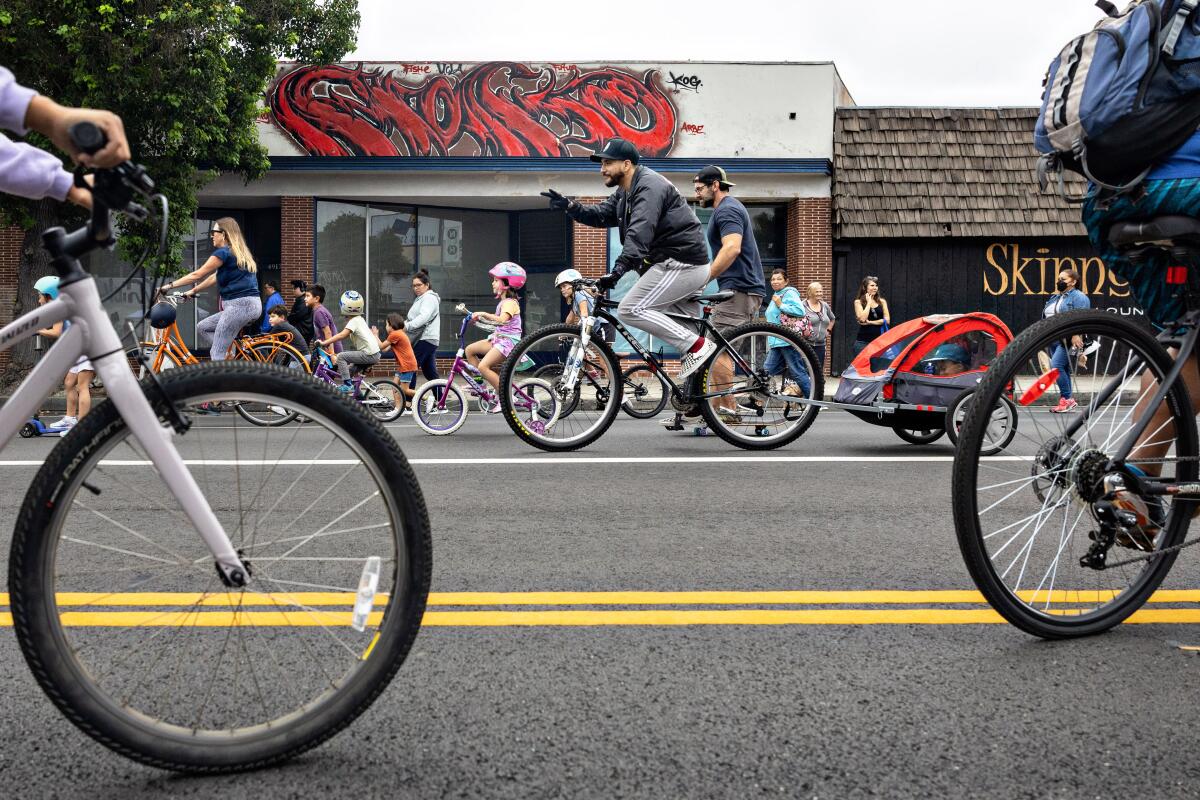Letters to the Editor: CicLAvia shows L.A. is ready to ditch car dependence. Pass Measure HLA

- Share via
To the editor: Measure HLA, the Los Angeles ballot initiative that requires the city to implement its own bike- and pedestrian-friendly Mobility Plan, could help change the mind-set of most Angelenos that having a car is necessary to get around here. (“Is Measure HLA a case of wishful thinking on traffic?” letters, Feb. 25)
When you have the opportunity to safely ride a bike in a neighborhood, it’s one less car on the road, good for your mental and physical health, and you become more aware of your surroundings than if you were inside an automobile.
Good examples of this idea are CicLAvia and Arroyofest, all-day events for biking, walking and skateboarding across portions of the L.A. area. These events have successfully brought people together and have made residents able to understand that people can live without a car.
Change is hard. I’m part of an older generation used to getting around in a car, but things are changing. We have a climate crisis, and driving isn’t enjoyable. Now, I get around on an electric bike, which both saves me money and prevents headaches.
Quirino de la Cuesta, Van Nuys
..
To the editor: We need the improvements to pedestrian and bicycle infrastructure provided by Measure HLA, and not just increased law enforcement.
For sure, drivers who break the law should be caught and incur stiff penalties to rein in the lawlessness we see on the roads. However, safe infrastructure is protective when the watchful eye of law enforcement is not around.
When you leave home, do you keep your front door open and hope a cop happens to drive by as you are being burglarized?
Curbs, bollards and other HLA improvements are ways to protect the vulnerable on the streets, 24/7, with less strain on law enforcement.
Mark Chaisson, Los Angeles




